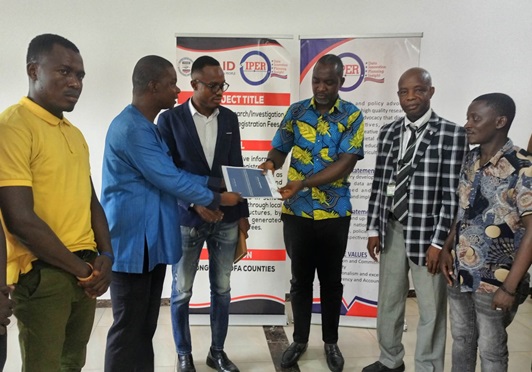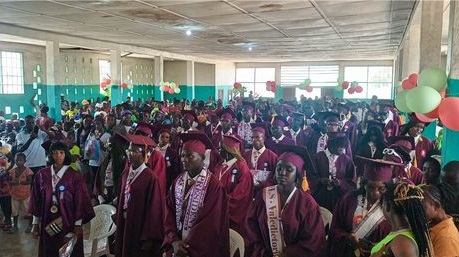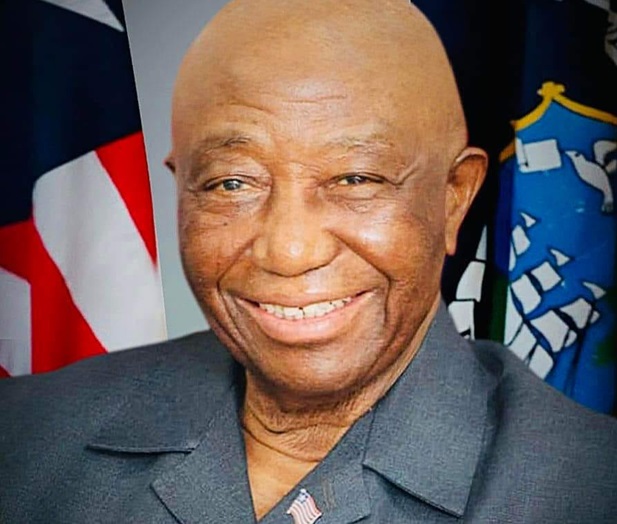A Research Conducted by the Institute for Policy Evaluation and Research in Bong and Lofa Counties focusing on Public Schools Registration Fees has uncovered huge missteps along the way in the administration public schools’ registration fees.
The report released by IPER Executive Director Mr. Jacob J. Flomo on Public Schools Registration Fees released over the weekend at a local hotel in Monrovia uncovered that education actors have not developed a registration fee policy for Liberia.
“The study finds that there is no written policy governing the collection, utilization and management of registration fee in the country. Others than a statement made by the MOE in 2019 calling on all schools to collect registration fees and transfer the fees to the MOE through a consolidated mobile money account managed at the MOE Central office in Monrovia” the report noted.
“Also, there is no record that systematically outline the policy, details it’s objective or outline the method for documenting and accounting for fees. The lack of documentation results in limited transparency in the registration fee collection and management process” IPER Research indicated.
Accordingly, the research also finds that based upon that, public schools are charging extra fees, adding that nearly all respondents in the study, both in the quantitative and qualitative research studies indicated being charged extra fees outside of the prescribed registration fees announced in 2019 by the Ministry of Education.
“For those who participated in the KIIs and FGDs , the combined extra fee charged per academic year sums above L$10,000.00 and for participants in the quantitative survey , the amount averages more than L$2,000.00. These figures fall far beyond the payment of required by the MOE” the report disclosed.
The report also finds that accountability for registration fees is low, because most schools don’t have bank accounts and there is no mobile money number registered in the name of the school.
However, as a result, the report discloses that students, parents are required to make payments of their fees in the hands of the school registrars or in personal accounts of school administrator, adding that 68 percent of students and parents pay their fees directly to the registrars.
Furthermore, the report points out that, the schools don’t report on their annual operations to the Ministry of Education through the District Education or County Education Officers, saying that limited accountability for fees paid could undermine the stipulated objective for the collection of registration fees.
“Low Citizen Participation in school management. The research finds that Citizens involvement is very low in schools management decision across the study counties. In some communities, the PTA and students leadership are relatively dormant and not active in the operation of the school. In others ares, it’s only the chairperson of the PTA that is involved not the entire body. We asked to provide Meeting minutes and attendance record for PTA meetings, school that claimed to have had PTA meetings could not provide any such” the report concluded.
In remarks, IPER Program Director, Mr. James B. Kollie asserted that the findings will be used as an advocacy tool in improving the educational sector in Liberia.
He pointed out that it’s in line with the advocacy of the 20 increment in the educational budget spearheaded by the USAID-CSA.
“We will be meeting with the ways means and finance Committees of the Legislature to ensure that this is passed for education to get better. We believe that significance of education cannot be overemphasized for a post war Liberia,” Kollie added.
Also making remarks, the Superintendent of the Monrovia Consolidated School System (MCSS), Mr. Isaac Saye-Lakpoh Zawolo acknowledged that education is a fundamental right for every citizen which, according to him, should draw the attention of all actors to the reform process.
Mr. Zawolo noted that the co- recipient of the Education Research Report, intimated that those who failed to manage and account properly the fees collected from public schools’ registration fees create a barrier to access education, adding that this sends a message of unpatriotic as it will undermine the forward march of the country.
He also said, “We have to be able to put the structure in place to safeguard the system so that our children who want to be in school can be in school. I am one of the persons who believe strongly that public education should be freed.”







